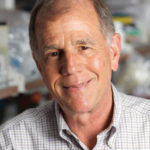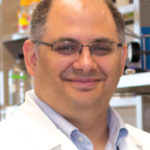A pair of experts on Monday afternoon will update attendees with new information on the dysregulation of cell processes related to malignancy and inflammation and the development of novel targeted immunotherapy for autoimmune diseases.

The ACR basic science symposium Science of Novel Immunotherapy will be held from 4:30 – 6:00 pm in Room 6 C. Dennis A. Carson, MD, Emeritus Professor of Medicine in the Division of Rheumatology, Allergy, and Immunology at the University of California San Diego School of Medicine in La Jolla, will discuss current research exploring novel regulators of immunity in rheumatic and malignant diseases and the promise of new tools and targets for drug discovery and implementation.
“Most rheumatic diseases are problems of regulation, not due to mutations or critical changes in a specific protein, and therefore, if we want to effectively treat these diseases without side effect, we have to develop agents that restore the abnormal regulation to normal,” Dr. Carson said. “A major aspect of our research is to come up with a new methodology to discover drugs that affect regulation in the feedback systems of immunity and inflammation, rather than blunt instruments that inhibit or enhance critical pathways, because those types of drugs, while very effective, often have significant side effects, particularly as people age.”

Also during this symposium, Michael C. Milone, MD, PhD, will describe the mode of action of chimeric antigen receptor T (CAR T) cells for therapy of malignancy and discuss the potential application of CAR T cell technology for therapy of autoimmune diseases. Dr. Milone is Associate Professor of Pathology and Laboratory Medicine and Associate Director of the Toxicology Laboratory at the University of Pennsylvania Perelman School of Medicine in Philadelphia.
CAR T cell therapy for B cell malignancies represents a paradigm shift in cancer immunotherapy, Dr. Milone said, noting that the technology has been adapted to target autoantibody producing B cells to eliminate desmoglein-3 autoreactive B cells in vivo to treat a pemphigus vulgaris model.
“In this application, we use the desmoglein molecule itself as the targeting mechanism,” Dr. Milone said. “We can redirect CAR T cells to very specifically kill only the B cells that are producing pathogenic antibodies to desmoglein, leaving the normal B cells intact.”
While most of their work with the CAR T technology is focused on targeting cells for cancer therapy, Dr. Milone said the pemphigus vulgaris model demonstrates the potential for applying the technology to other diseases.
“Using engineered T cells for cancer is just the beginning — we’re only at the dawn of cellular therapies,” Dr. Milone said. “It’s a whole new therapeutic platform that has potential for many different types of diseases beyond cancer, autoimmune diseases in particular.”


